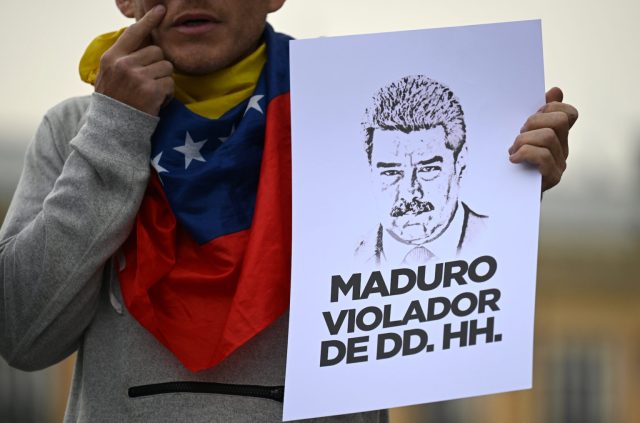
“These attacks, both on the opposition and on journalists, have been going on for a long time, almost 20 years,” Leonardo Paz, a researcher at the Center for Prospecting and International Intelligence at the Getúlio Vargas Foundation, told Diálogo. According to Paz, the increasing attacks indicate that the regime has more control over regulatory, security, and judicial bodies, allowing it more flexibility to threaten people critical of the regime.
By Dialogo Américas – Nelza Oliveira
May 19, 2023
The political-economic crisis in Venezuela, coupled with the repression and attacks on the population, brings consequences to all other countries in Latin America and the Caribbean.
“A big first issue is with regard to the flow of migration. [There is] a large flow of refugees or migrants, especially in Colombia, but also in many other countries, as well as in Brazil,” Paz said. “There are also the issues related to criminal activities. We have an old discussion about the Venezuelan regime having ties with paramilitary groups, former guerrillas like the FARC [Revolutionary Armed Forces of Colombia], […] either to guarantee in a certain way attacks on detractors of the government, or to help in illicit activities to guarantee a financial return for that,” Paz added.
According to the U.N. Refugee Agency, there are more than 5 million Venezuelans living abroad to escape violence, insecurity, and threats, as well as the lack of food, medicine, and essential services, the vast majority in Latin American and Caribbean countries.
“The actions and decisions of the regime, an autocrat, which has complete contempt for democracy, naturally affect the region as a whole, because it is an important country in terms of population, and has a fairly representative population in South America. Some countries, such as Brazil, have taken in Venezuelans as refugees, and this creates a problem for the countries that receive them. It’s a burden; it’s a weight,” professor Paulo Afonso Velasco Júnior of the International Relations Department at the Rio de Janeiro State University, author of the book Venezuela and Chavismo in Perspective, together with journalist Pedro Rafael Mariano de Azevedo, told Diálogo.
The expansion of cross-border crime leads to environmental destruction, illegal gold mining, and the invasion of indigenous lands. According to the Mission report, in the Orinoco Mining Arc and other areas of southern Venezuela, there have been reports of attacks on indigenous people, as well as attacks on indigenous leaders. One such case was the murder of Virgilio Trujillo Arana, a leader of the Piaroa people, in 2022. The U.N. report says his murder must be “seriously investigated.”
Two recent draft bills could also potentially have a high impact on the ability of NGOs to carry out their work, the FFMV found. “If sanctioned, the new regulations will consolidate an abusive control by the regime over the existence, funding, and activities of NGOs,” said Francisco Cox Vial, Mission member.
The FFMV also highlighted the continuing high number of deaths due to clashes with law enforcement officials, with more than 700 such deaths in 2022, according to estimates from NGOs and other sources.
…
Read More: Dialogo Américas – UN Experts Warn of Worsening Attacks on Civil Society in Venezuela
…

